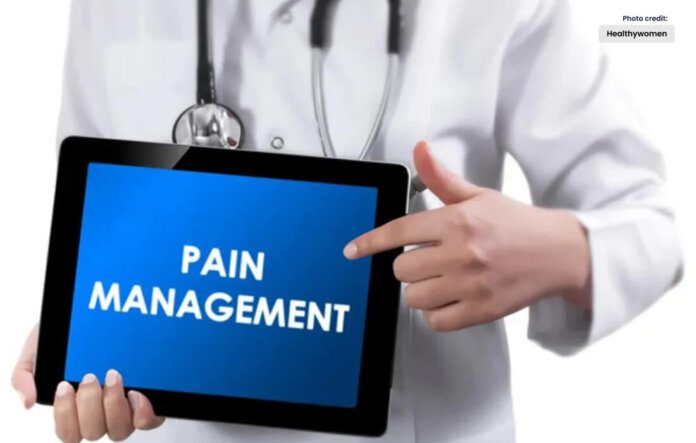Seek local pain management for a better life amid with chronic pain.
Introduction:
Pain treatment comes in many forms, from acute and simple to chronic and difficult, and is managed as a part of medicine and health care. Further, we will provide you with a comprehensive guide to finding effective pain management solutions in your area, helping you regain control and improve your overall well-being.
Consult Your Primary Care Physician:
When seeking pain management options, the first step is to consult your primary care physician. They will evaluate your condition, also diagnose the underlying cause of your pain, and recommend appropriate treatment options. Your physician may prescribe pain medications, refer you to specialists, or suggest non-pharmacological approaches based on your specific needs.
Pain Management Specialists:
These specialists are medical professionals who specialize in treating chronic pain. Basically they have advanced knowledge and expertise in diagnosing and managing various types of pain conditions. These specialists may include:
a. Anesthesiologists:
Anesthesiologists often have subspecialties in pain management. They are trained in performing interventional procedures, such as nerve blocks, epidural injections, and spinal cord stimulation, to alleviate pain.
b. Physiatrists:
Physiatrists, also known as rehabilitation physicians, focus on restoring and improving function in individuals with chronic pain through physical therapy, exercise, and other non-surgical treatments.
c. Neurologists:
Neurologists specialize in disorders of the nervous system, including chronic pain conditions. furthermore they can provide diagnostic evaluations and treatment plans tailored to your specific needs.
d. Rheumatologists:
Rheumatologists primarily treat pain related to autoimmune diseases and conditions affecting the joints, muscles, and connective tissues.
Comprehensive Pain Management Clinics:
Comprehensive pain management clinics offer multidisciplinary approaches to pain relief. These clinics bring together a team of medical professionals from various specialties to address the physical, emotional, and psychological aspects of pain. Services provided at these clinics may include medication management, physical therapy, occupational therapy, psychological counseling, and alternative therapies like acupuncture or chiropractic care.
Medical Exercise:
Physical therapy is a non-invasive method of that emphasizes enhancing function, mobility, and strength. Exercises, stretches, manual therapy, and modalities like heat or cold therapy may be included in the individualized treatment regimens that physical therapists create after evaluating your condition. They can also educate you on techniques for managing pain and preventing future injuries.
Integrative and Alternative Medicine:
Integrative and alternative medicine approaches can complement traditional pain management methods. These therapies include acupuncture, chiropractic care, massage therapy, herbal supplements, and mindfulness techniques like meditation or yoga. Seek out reputable practitioners in your area who specialize in these modalities and can work in collaboration with your primary healthcare team.
Support Groups and Psychological Counseling:
Living with chronic pain can take a toll on your mental and emotional well-being. Joining support groups or seeking psychological counseling can provide you with a safe space to share your experiences and learn coping strategies. Mental health professionals, such as psychologists or licensed counselors, can help you manage stress, anxiety, and depression that often accompany chronic pain.
Conclusion:
Finding effective pain management near you requires a comprehensive and multidimensional approach. By working closely with your primary care physician, pain management specialists, and other healthcare professionals, you can develop a personalized treatment plan that addresses your specific needs. Remember to explore various options, including physical therapy, comprehensive pain management clinics, integrative and alternative medicine, and psychological support. Take an active role in your pain management journey, and with time, you can regain control, improve your quality of life, and find relief from chronic pain.
Find out more about https://rockedgeurdu.com/




